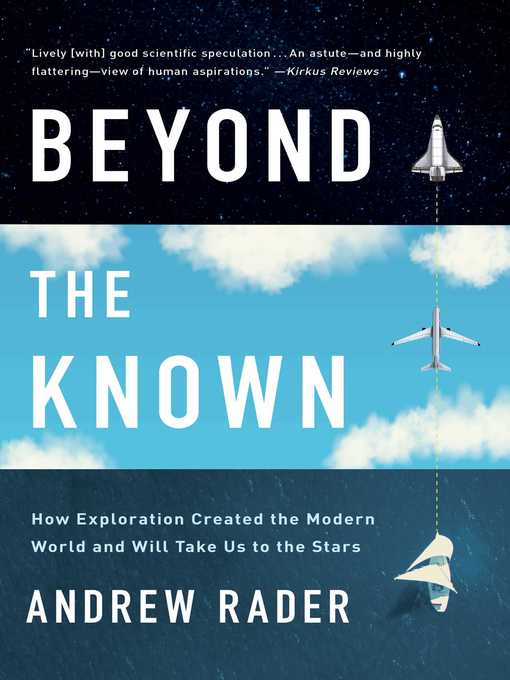
Beyond the Known
How Exploration Created the Modern World and Will Take Us to the Stars
کتاب های مرتبط
- اطلاعات
- نقد و بررسی
- دیدگاه کاربران
نقد و بررسی

September 9, 2019
A children’s author and SpaceX engineer, Rader (Mars Rover Rescue) offers an expansive, overly ambitious look at human exploration. Packed with information, the work testifies to Rader’s extensive research into, and avid enthusiasm for, the subject. He addresses common myths, such as that Europeans, during their first expeditions to the Americas, believed the Earth to be flat. To that end, he observes that, by the Middle Ages, the Earth’s spherical shape “would have been second nature to sailors who... observed the horizon’s curvature on a daily basis.” While Rader notes exploration’s negative repercussions, he doesn’t sufficiently address them. For instance, he glosses over Columbus’s atrocities with such statements as the navigator noting “the gentle indigenous people would make ideal servants, so he kidnapped a few.” Similarly, when addressing the mid-20th-century space race, Rader fails to comprehensively explore the complex legacy of German-born NASA rocket engineer Wernher von Braun—in particular, his earlier service on behalf of the Third Reich. Rader falls short of his goal—transmitting to the reader his excitement for the future of exploration, particularly of the solar system—by failing to fully to do justice to its past. Agent: Bonnie Solow, Solow Literary.

September 13, 2019
In his first book for adults, Rader, Mission Manager at SpaceX and host of the podcast Spellbound, concentrates on much more than space exploration. He begins by summarizing key points in the history of adventures, exploration, and discoveries in straightforward, easy-to-understand chapters. Rader shares the view of Michio Kaku, author of The Future of Humanity, and others regarding our future in that "we either remain on Earth and...wipe ourselves out [or]...we become spacefaring." Yet, even in his critiques of setbacks such as the end of the Saturn V rocket, the work's tone is positive, with the theme of "how exploration enriches us" excellently elaborated. And while not overly detailed, in some parts, such as a chapter on Amelia Earhart, passages can run long.
VERDICT This clearly written and engaging overview of human exploration since our beginnings will capture the imaginations of both YA and adult readers. Highly recommended.--Sara R. Tompson, Lawrence, KS
Copyright 2019 Library Journal, LLC Used with permission.

October 1, 2019
An aerospace engineer makes a reasonable argument that progress owes less to war, politics, or religion than love of exploration. A mission manager at SpaceX, Rader is no scholar, but he has read the scholars as well as the popular books, so he has done his homework. As a result, his history of the human species, which makes up most of his book, has an air of authority as well as a lively pace. While no historical expert claims that East Africa circa several million years ago was overpopulated, almost everyone agrees that our ancestors wandered. Even before Homo sapiens appeared about 200,000 years ago, hominids spread across Asia and Europe. Our species followed in several waves, arriving at America and Australia and, within the past 1,000 years, the Pacific islands. Rader emphasizes that these were not accidents. It's likely that reaching America and certain that reaching Australia required a sea voyage, and finding isolated Pacific islands required almost superhuman navigation skills. Furthermore, these travelers brought along families, domestic animals, and plants as well as their culture and technology. The author marches quickly through the history of civilization, leaving no doubt in the reader's mind that nations driven to explore--a word which he takes to include trading, conquering, or simply traveling--prospered. No good resulted if they gave it up (see 16th-century Japan or medieval Europe). With polar regions explored in the early 20th century, Rader drops geography to devote the final 100 pages to the history of flight and space travel and the possibilities of reaching the planets and stars. Inevitably, he ends with a great deal of speculation, but it is good scientific speculation that will leave readers yearning to see how it turns out. "If the history of exploration has taught us anything," he writes, "it's that amazing things happen when humans force themselves to try something no one has done before." An astute--and highly flattering--view of human aspirations.
COPYRIGHT(2019) Kirkus Reviews, ALL RIGHTS RESERVED.

























دیدگاه کاربران